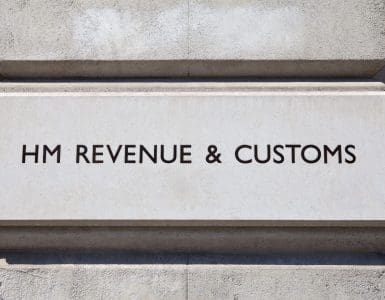How do investors know they’re getting what they paid for in an investment round? Due diligence. According to Google, due diligence is:
a comprehensive appraisal of a business undertaken by a prospective buyer, especially to establish its assets and liabilities and evaluate its commercial potential.
Basically, it’s investors checking you are who you say you are.
If you are aiming to raise more than $1m, you’ll most likely need to go through a due diligence process. Depending on the investor, you may even need to do due diligence for $50,000. After all, a bank wouldn’t give you $100 without knowing who you are, where you live, and whether you can pay it back.
This post will help you sail through your first seed investment due diligence process.
What will I be asked?
Different investors will ask for different information. Angel investors may only need proof of company incorporation or proof of identity documents. Often, angels don’t ask for any due diligence.
More structured investments, like venture capital funds, will normally require more information. This is so they can protect themselves from fraud.
Proof of identity documents
According to many resources, proof of identity documents is also known as know your client (KYC) or anti-money laundering (AML) documents. The usual procedure is to include an ID copy, such as a passport or driving license, and proof of address. The proof of address will usually need to be a copy of a bank statement or utility bill.

These document copies are often required to be certified copies or occasionally a notarized document. A certified document is a copy of the original with a witness verifying its authenticity. For a certified copy you will need someone “of good standing” such as:
- Lawyer or notary
- Accountant
- Doctor
- Dentist
- Teacher
- Religious leader
- Bank manager
It can’t be someone related to you, in a relationship with you, or living with you.
A certified copy needs a witness to view the original document and the copy. They then need to:
- Write ‘Certified to be a true copy of the original seen by me’ on the copy.
- Sign and date the copy.
- Print their name next to their signature.
- Add their occupation, address and phone number.
Sometimes the investor is happy with a scan of the certified copy.
Proof of incorporation
When you incorporated your company, you will have received a certificate of incorporation. If you haven’t incorporated yet, you will need to do so. Otherwise, the investor will not be able to acquire shares in your business, which is the whole point usually.
The business plan
Your business plan requirement will vary depending on your investors. Often startup investors will be happy with a pitch deck. Occasionally you might have to produce an old-school business plan, which basically means you need a detailed, written business plan rather than a deck.
In either case, you should cover the following areas:
- Opportunity – What big market changes are happening? Why is now the right time for your startup to exist?
- Problem – What problem is your startup solving? Keep this simple and concise. They really need to understand how this is a real problem, not an invented one. Often startups are making problems that don’t have a market demand.
- Solution – How is your startup solving the problem? You can then explain the product in more detail after a high-level concise answer.
- Traction – Give examples of how you are already nailing it. This could be growth statistics in active users, growth in sales, revenue growth, or even awards at competitions or trade shows. You need something here. If you’re solving something complex, it could be product development progress or regulation progress (particularly for fintech startups).
- Business model – How are you going to make money? If you are already making money, explain how. If you are pre-revenue then this should be where you convince them you will make money. For high-growth consumer products, there is an argument for avoiding this altogether but this will really depend on your investors. Are they the perfect investor?
- Route to market – How are you going to access the market? How are you going to grow? Don’t just say “we will use AdWords” because everyone does this. Validation of your route-to-market (cost per acquisition or cost per sale) will help you here if you have data.
- Team – Why are you the team to make this vision a reality? What is your experience? Why do you care about this problem? Which investors do you already have on board? Which advisors do you have on board?

Financials
If you are already trading, you will need to show your profit and loss and balance sheet – you can use a profit and loss statement template to get you started. All investors will want to see this. This shows them any outstanding debt and the financial position of the company.
You should prepare a financial forecast for the next 3 years. You should cover revenue streams and your main expenses:
- Salaries
- Sales and marketing
- Equipment costs
- Rent
Think about how your team will grow over time, how your costs will evolve, and obviously make sure your revenue grows nicely. How punchy your revenue projections need to depend on your confidence and the investors you are targeting.
Shareholders
You should have a cap table prepared that lists your current investors and any previous investment rounds. The cap table shows who owns your startup. It should also highlight any employee share options and different share types. For example, does a previous investor have participating preferred shares?
You might need to give AML documents to major shareholders and the founders.
Intellectual Property
Your investor might require you to prove your ownership of intellectual property (IP) in the business. IP covers anything that the company has made. For example, designs you’ve drawn, lines of code, prototypes you’ve made, and any other tangible or intangible asset. An IP assignment agreement could be enough to give peace of mind to investors. Otherwise, someone could argue some of the IP was created by an individual outside of the company. This would leave you and your investors exposed to trouble.
Contracts
Are your employees actually employed and do they have a contract? Employment contracts can cover any IP issues, make salaries clear, and ensure confidential information stays confidential.
Other material contracts should be included in your due diligence. These could be your office lease, sales agreements with third-party companies, and IP agreements for agencies that have developed your product.

Data room
For startups, a data room is an electronic store of all the due diligence documents. Historically it was called a data room because it was just that, a room full of data. Nowadays, this can simply be a private Dropbox or Google Drive folder.
Your investor might ask for a certain structure. Here is an example due diligence questionnaire we were asked to fill in. We made subfolders that were numbered and filled with evidence corresponding to each question. This covered all due diligence documents mentioned in this article.
Be organised to save time and headaches
Once you’ve signed a term sheet with an investor, work will start on the legal. While this is happening you can get your data room prepared. Ask the investor what they will need to see, and they should give you a checklist.
It can actually be a good investment trick to have this all prepared before you start reaching out to investors. Then, when they ask for extra information you can give them access to your data room. This will make you look very slick, professional, and prepared. Also, the legal process can take a lot of your time, so having your data room ready will save you time.








